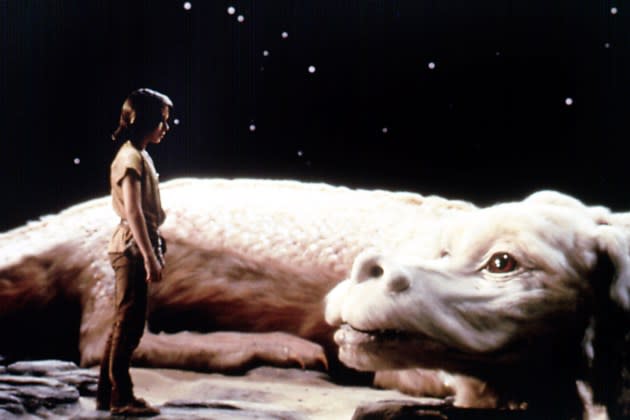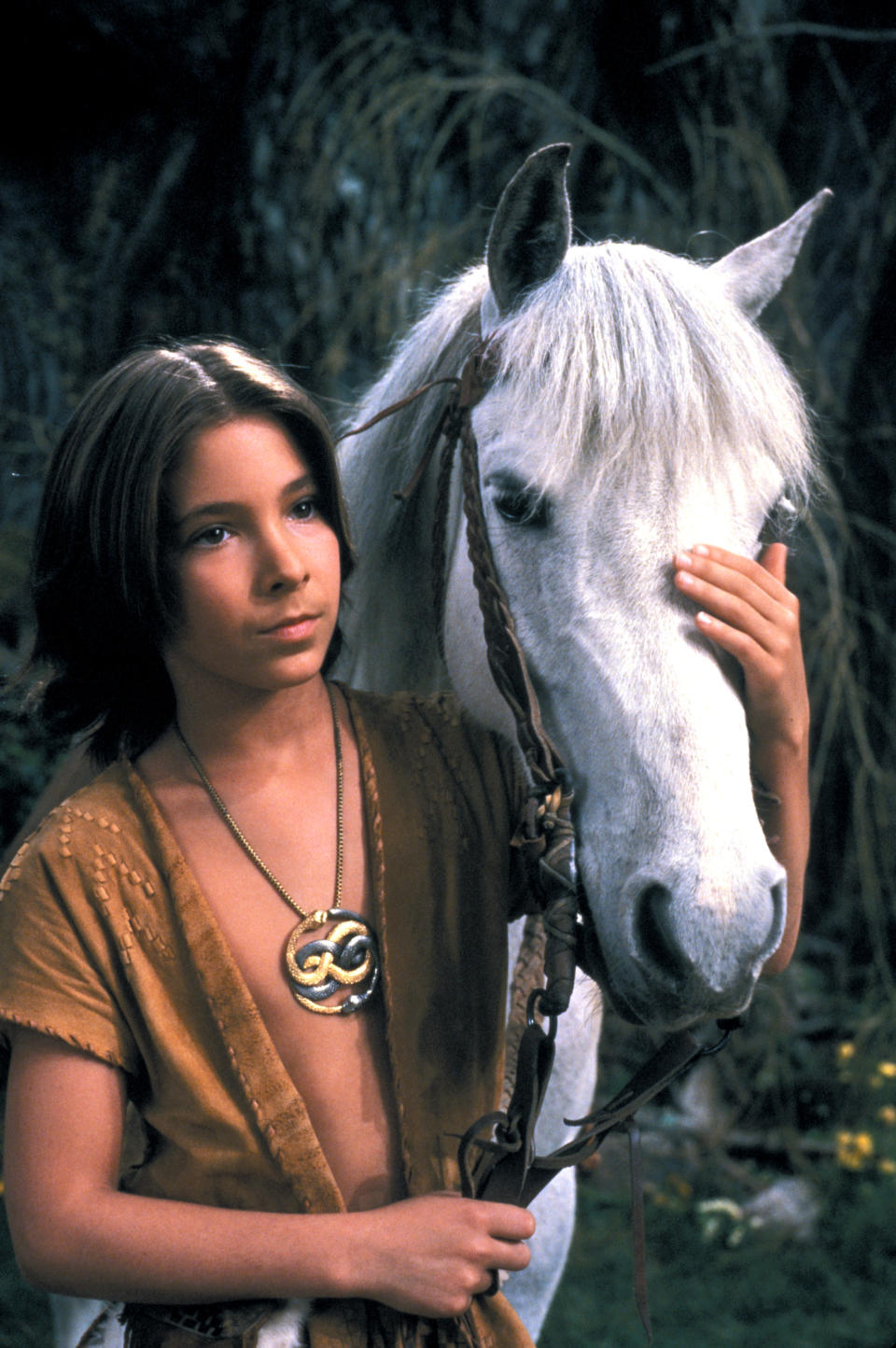The Dish: Fantasy Classic ‘The NeverEnding Story’ Subject Of Film & TV Rights Bidding War
- Oops!Something went wrong.Please try again later.
- Oops!Something went wrong.Please try again later.

EXCLUSIVE: Children’s classic The NeverEnding Story could become the next major fantasy property to get a screen reboot.
While The Rings of Power and House Of The Dragon duke it out for TV ratings, I recently asked one European studio head which fantasy property could be the next IP to pop. Their answer: The NeverEnding Story.
More from Deadline
DC Intrigue: 'Lego' Franchise Producer Dan Lin In Pole Position For Top Spot - The Dish
Anna Gross Dies: Film Executive Behind 'Tootsie', 'The NeverEnding Story' And More Was 68
It turns out a handful of streamers and studios, on both sides of the Atlantic, are chasing screen rights to the beloved property by the late German author Michael Ende. We have spoken to multiple interested parties and hear there are multi-million dollar offers on the table. German agency AVA represents the estate but declined to comment.
The NeverEnding Story follows a boy who happens upon a magical book that tells of a young warrior given the task of stopping the Nothing, a dark force [Stranger Things, anyone?], from engulfing the wonderland world of Fantastica. It’s a special tale, full of dragons, shapeshifters, giants and spectacular kingdoms. At its heart is the story of an awkward boy, trying to connect with his own family and escape from school bullies, who becomes lost (and found) in a fantastical world of danger and adventure.
The 1979 book was a huge hit in Germany, sitting in the bestseller list for years. The story went on to spawn films, TV series, video games, pop songs, spinoff novels and stage plays. It has been translated into 40 languages and has sold millions of copies worldwide. One survey from a German filmmaker found that the book had particular appeal among readers aged eighteen to thirty-five, which is potentially good news for those interested in the IP’s marketing reach. And yet, there has been virtually no new material related to the franchise over the past couple of decades.
Most English-language audiences know the story from the cult 1984 fantasy film co-written and directed by the late Wolfgang Peterson in his first English-language film.

Everett Collection
At the time of its release, the iconic movie, produced by leading German producer Bernd Eichinger (co-founder of Twilight studio Summit), was the most expensive film produced outside the US or USSR. The film adapts only the first half of the book but the second half of the book was subsequently used as a rough basis for the second film, The NeverEnding Story II: The Next Chapter (1990). A third film, The NeverEnding Story III: Escape From Fantasia (released in 1994 and featuring a young Jack Black), has an original plot not based on the book.
The original movie made $100M worldwide and garnered mixed reviews. Famously, Peterson contrived one of the key characters, Falkor the Luckdragon, as a giant dog instead of a dragon (reportedly because he wanted to make a friendly-looking creature that his son would find adorable).
The book/film was back in the headlines a few years ago thanks to Stranger Things, when Dustin and Suzie perform a memorable rendition of the film’s popular synth theme song. The original song, written by Italian Giorgio Moroder, aka the “Father of Disco”, subsequently got millions more hits on YouTube, and Stranger Things star Millie Bobby Brown soon launched the #NeverEndingChallenge, which went viral and was picked up by talk-show hosts Jimmy Fallon and Stephen Colbert.
The back-story to the rights is indeed complicated, a never-ending story of its own. There has long been interest in the property from film and TV companies but there have been various law-suits in Germany over ownership.
More than a decade ago there were stories that Warner Bros (who released the first movie in the U.S.), Kennedy/Marshall Company and Leonardo DiCaprio’s Appian Way were working on another adaptation. But in 2011, Star Wars producer Kathleen Kennedy said that problems securing the rights to the story meant that a second adaptation was “not meant to be”.
Interest has crystallised in recent months and there seems a willingness from the estate to do business, emboldening film and TV companies, even if a stumbling block remains how much control the estate wants on the direction of the story.
Michael Ende himself unsuccessfully sued the producers of the original movie when he felt they were deviating too much from the story. Ende ultimately wasn’t happy with the final product, calling the film a “gigantic melodrama of kitsch, commerce, plush and plastic”.
Perhaps now the time is ripe for a revival of one of Europe’s classic children’s properties.
Best of Deadline
Sign up for Deadline's Newsletter. For the latest news, follow us on Facebook, Twitter, and Instagram.

